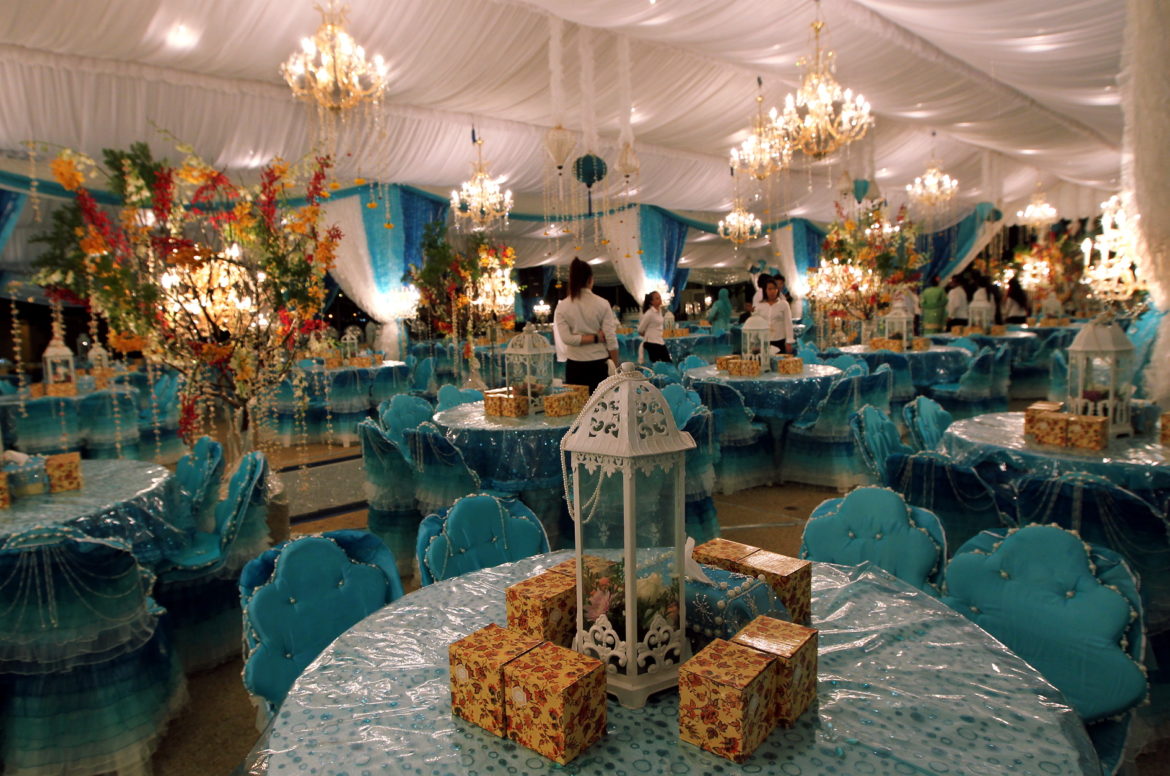As Singapore continues to take a cautious approach due to the new Covid-19 normal, safe management measures have been put in place for activities where large numbers of people are likely to come into close contact. The following measures have been implemented for the safe execution of weddings and funeral wakes at Housing and Development Board (HDB) void decks.
Wedding Receptions
Before applying for a permit from the Town Council, the wedding organiser and couple are required to submit their event details to the Singapore Malay Chamber of Commerce and Industry and obtain a letter of acknowledgment.
Group size and limited interactions
- The maximum number of attendees must not exceed 100 people, depending on venue capacity and safe distancing measures. This excludes the solemniser, vendors and premise staff.
- Attendees must be split into either multiple zones of up to 50 people, or across staggered timings with up to 50 people in each slot. A minimum 30-minute interval must be implemented in between slots. There must be no intermingling among groups.
- A “wedding party” comprising up to 20 people (including the bride and groom) is allowed and it must fall within the 100-person limit. Individuals in this “wedding party” may interact with one another within the group and may sit with one another at tables of more than five people. However, they must not intermingle with other attendees outside the “wedding party”.
- Excluding set up and tear down, the wedding reception must abide by a six-hour continuous time block. The organisers must ensure that all attendees leave the premises immediately after the wedding reception is completed.
- Live performances or activities involving singing, loud talking or shouting are not allowed.
Food and Beverage Guidelines
- Food and beverage must not be served at solemnisation ceremonies.
- Self-service buffets are not allowed. Sharing of dishes and platters is strongly discouraged.
- All attendees must be assigned fixed seating, and free-standing activities such as cocktail receptions are not allowed.
- Attendees should not share cups, cutlery and utensils.
Wearing of Face Masks and Contact Tracing
- The bride and groom may wear face shields instead of face masks. They can unmask for key moments, but must be at least two metres from others at such times.
- Guests must wear masks at all times.
- Organisers must take the temperature of all attendees, and turn away those with fever or who appear unwell.
- All guests should activate TraceTogether and use SafeEntry to check-in and out of the event.
Post-funeral Religious Rites
- The number of attendees at the event should be kept to 30 people or fewer at any time. This excludes any religious worker, and the number of them should be kept to a minimum.
- All attendees are to check-in and out of the event via SafeEntry, using the SafeEntry QR code provided by the Town Council.
- Temperature screening and checks on visible symptoms such as coughing and runny nose must be conducted for every individual participating in the event (including the religious workers). Those with fever or appearing to be unwell should be turned away and advised to see the doctor.
- Every individual must wear a mask and maintain a distance of at least one metre from another at all times. If seating is provided, each table or cluster of chairs must be limited to a group of five or fewer, with at least one metre between groups. There should be no intermingling among groups.
- Buffet set-up or reception with food and drinks are not allowed during the event.
- There should be no live band, processions, singing groups, or musical performers, nor the use of any musical instrument, auctions, or games during the event.
- The premises must be cleaned and disinfected at the start and end of each day’s activity. High-touch-point places and surfaces, such as prayer tables, must be periodically cleaned and disinfected. Disinfecting agents, such as hand sanitisers, should be made available at all times. If portable toilets are installed, toilet paper, soap, and refuse bins must be adequately supplied at all times.
- There should be no sharing of common items, such as holy books and prayer mats, or the passing of offertory baskets. Where needed, worshippers should bring along their personal prayer items instead.
- The organisers must ensure that attendees leave the premises immediately after the rites are completed.
Photo: The Straits Times; used for illustration purposes only.

